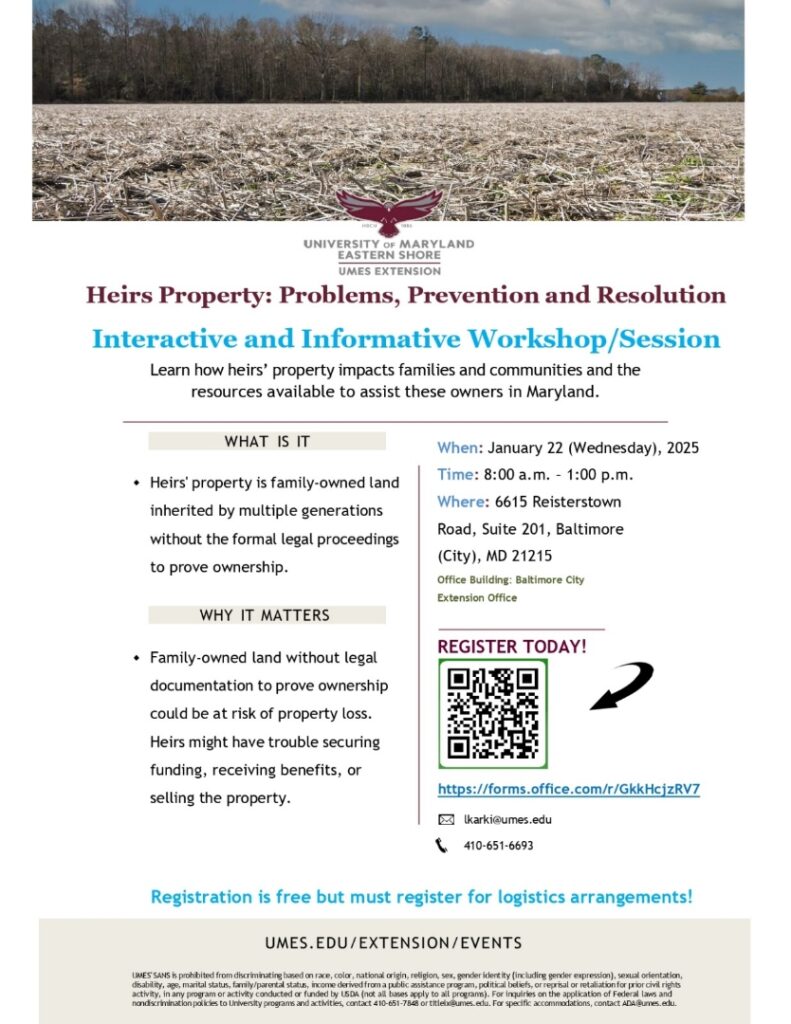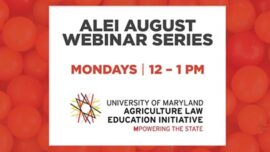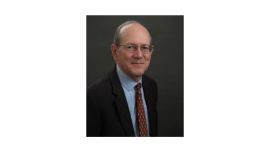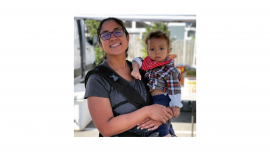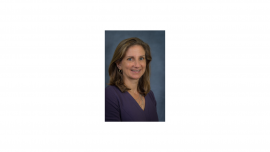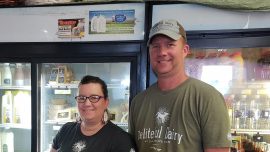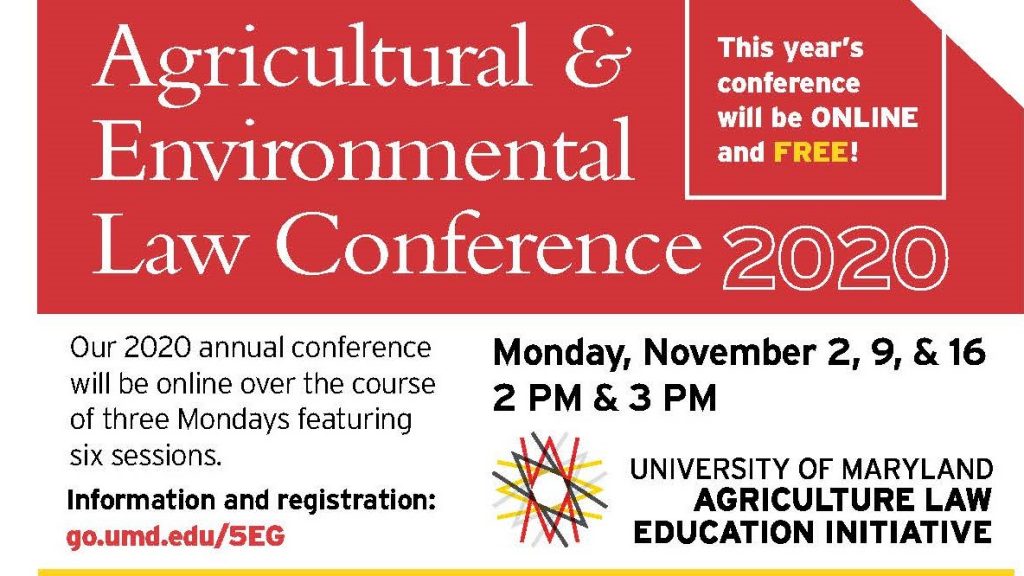
By Megan Todd
For six years the Agriculture Law Education Initiative (ALEI), a multi-institutional University of Maryland program that provides legal education to the agricultural community, has hosted a conference to discuss the complex legal issues that farmers grapple with regularly. This year, due to ongoing uncertainty related to the global pandemic, ALEI is moving its annual conference online by hosting a three-week webinars series. The online sessions will be free of charge and run on November 2nd, 9th, and 16th from 2:00 pm – 4:00 pm. For more information or to register, visit https://alei2020conference.eventbrite.com
Farmers have faced a myriad of unprecedented challenges during the COVID-19 pandemic and the conference will begin on November 2nd with a session focusing on the impact of COVID-19 on Maryland’s dairy industry and how dairy farmers managed the risks to their farms during the pandemic. Katie Dotter-Pyle, Co-Owner and Farmer at Cow Comfort Inn Dairy and Creamery, and Linsday Reames, from Maryland and Virginia Milk Producers Cooperative Association, will share lessons learned about navigating supply chain disruptions, loss, and changing markets, worker issues, insurance, and disaster relief programs. Regardless of what crop you raise, producers won’t want to miss these tips for adapting operations amid the pandemic.
The online session on November 2nd will also include the contentious topic of air quality monitoring of growers for Delmarva’s poultry industry. Holly Porter, Executive Director, Delmarva Poultry Industry and Samantha Campbell, President, Campbell Foundation will discuss the status of their joint project to monitor air emissions from poultry houses, what can be learned from the most recent air quality monitoring results, and the potential next steps for the project.
Sessions in the last two weeks of the online sessions will highlight regional water quality concerns and the local and federal legal frameworks for water quality improvements. On November 9th the sessions will focus on recent developments in the Chesapeake Bay restoration efforts, specifically the pending lawsuit against the U.S. Environmental Protection Agency (EPA) to enforce Bay clean-up efforts for all the states in the watershed. Despite continued efforts from the agricultural sector, many, including the Chesapeake Bay Foundation, fear that without the full commitment of all of the states within the Chesapeake Bay watershed, the clean-up will not be successful within the established timeframes. A related and hotly debated topic, the Conowingo Dam settlement, will also be discussed on November 9th, and will feature experts representing the Clean Chesapeake Coalition and the Maryland Department of the Environment.
The final sessions on November 16th will include experts from the American Farm Bureau Federation and others to discuss the Clean Water Act Waters of the United States (WOTUS) rule. This session will help growers understand the current legal definition of the WOTUS rule and how this legal concept applies to agricultural operations. The Conference will conclude with a round-up of this year’s hot topics in Agricultural and Environmental Law and developing issues to watch out for in 2021. Hosted by ALEI’s Paul Goeringer, this session never fails to provide a thorough overview of the most interesting legal developments.
Although the Conference will be hosted in a different format, the event will continue to serve the important role of allowing farmers to present, learn, and ask tough questions about the environmental and agricultural laws that impact their operations. Time will be allotted following each session to allow attendees the opportunity to open dialogue and ask questions to the panelists, so register today and come prepared to join the conversation.
